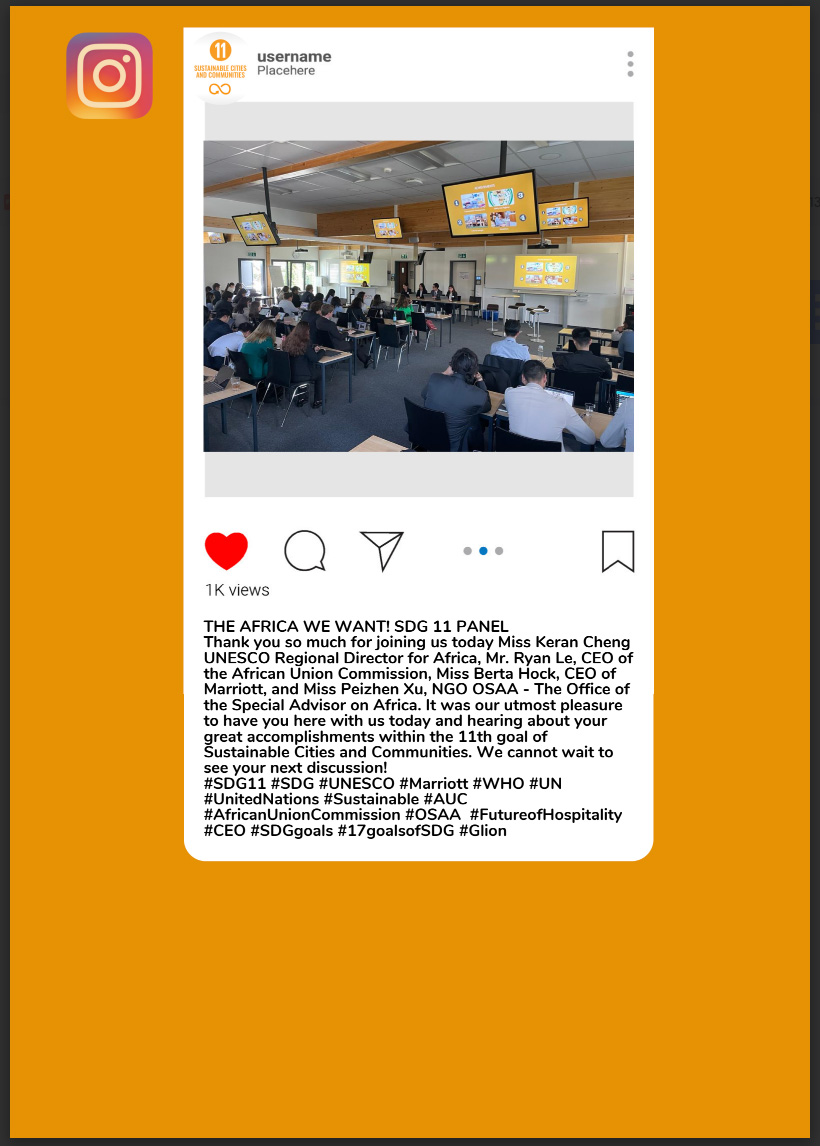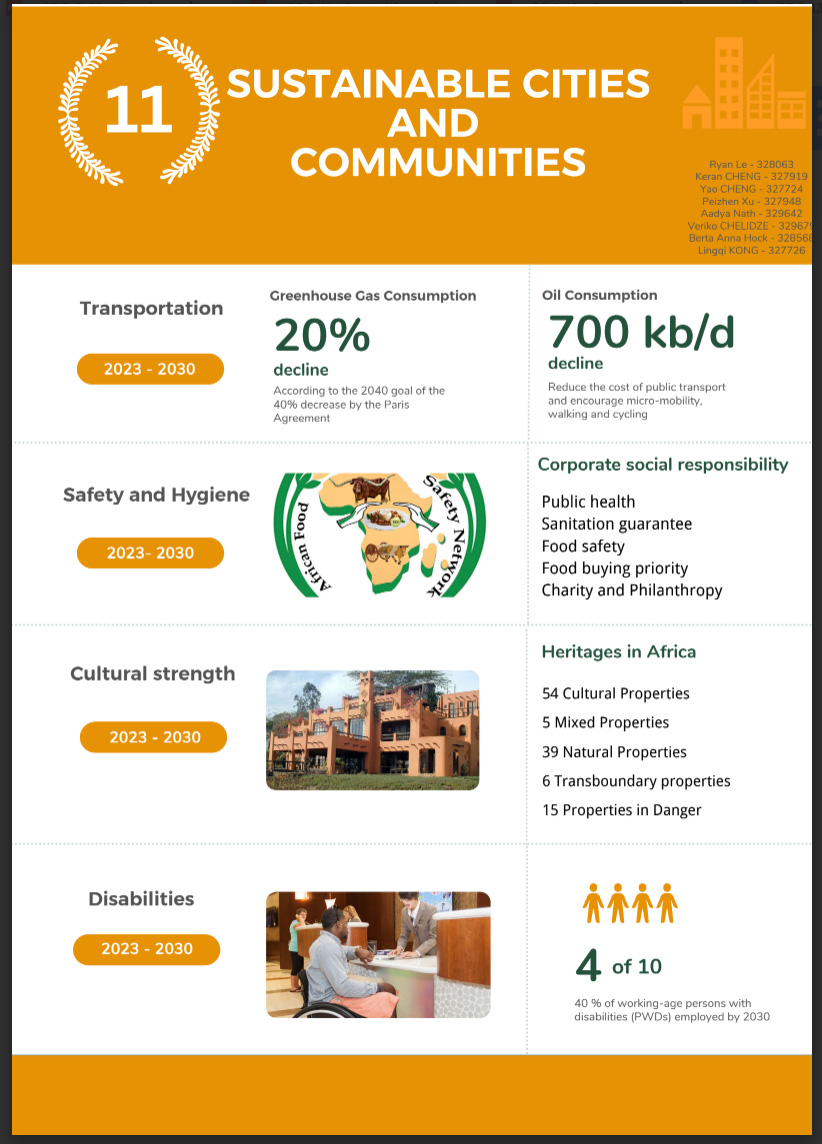The following publication is part of a series of 7 pieces prepared by Glion’s IHB Masters students during a one-day workshop aiming at highlighting the potential of the hospitality industry to contribute to the achievement of the UN SDGs by 2030. All figures, data and initiatives are fictitious and were created by students in the context of an immersive and transformative learning experience where students generated ideas and propositions that transcend the conventional thanks to the simulation of a professional conference taking place in 2030.
Learn more about the workshop at Glion here.
This piece focuses on SDG 11, Sustainable cities and communities. Students chose to focus on the African continent and the role that a major hotel group like Marriott could play in creating powerful partnerships to generate positive impact beyond their hotel properties. They saw four leverages: the development of transportation networks, supporting cultural strength, commitment to the African Food Safety Network and facilitating the employment of disabled people.
——–
I’m delighted to inform you that we’ve reached a major milestone on our path to sustainability. Sustainable Development Goal 11—Sustainable Cities and Communities—was completed in 2030, signifying a turning point in our commitment to a better planet for future generations!
Looking back, our efforts to build inclusive, resilient, and sustainable African cities have paid dividends. A few significant urban transformations:
Sustainable infrastructure with cultural strength: Our cities have efficient and eco-friendly infrastructure systems that maximize resource use and minimise environmental effects. Energy-efficient buildings, renewable energy, and effective waste management have become the standard, considerably reducing our carbon footprint and minimizing climate change. We also worked with UNESCO to preserve African culture and legacy by building on existing cultural properties.
Public transportation has improved dramatically. Electric buses, trains, and bike-sharing schemes have transformed city transportation. These approaches have reduced traffic, air pollution, and travel times while promoting accessibility.
Safety and Hygiene: This transformative framework must stress safety and hygiene. Sustainable urban development improves citizens’ health. Thus, sanitation infrastructure and clean water have made African towns safe and hygienic. Health-Focused Urban Planning helped construct healthy, sustainable cities. Green spaces, pedestrian-friendly infrastructure, and bicycle networks encourage active lifestyles and reduce pollution-related health hazards in cities. Improved access to clinics and hospitals ensures that all inhabitants may receive quality medical care. To maintain progress, residents must be educated about safety and hygiene. Hygiene, trash management, and disaster preparedness are promoted through educational campaigns and community engagement. We promoted accountability and consciousness to make cities safer and cleaner.
Disabilities: Sustainable urban development must emphasize disability inclusivity and accessibility. Recognizing and meeting the needs of disabled people ensures that our cities leave no one behind. We included accessible infrastructure, inclusive housing, jobs, and economic opportunities. Sustainable cities ensure disabled persons work and start
businesses. We can empower disabled workers by promoting accessible workplaces, appropriate accommodations, vocational training, and inclusive hiring practices.
We celebrate this great milestone, but our work is not done. As we proceed toward sustainable urban development, we must maintain our progress, improve, and meet new issues.
We can build cities, communities, and a world that future generations will be proud of!
#Sustainable#sustainabledevelopment#sdgs2030#sdg
Berta Anna Hock
Marriott CEO




*Article by Ryan Le, Keran CHENG, Yao CHENG, Peizhen Xu, Aadya Nath, Veriko CHELIDZE, Berta Anna Hock & Lingqi KONG
About Glion Institute of Higher Education
Founded in 1962, Glion Institute of Higher Education is a Swiss institution offering bachelor’s and master’s degrees in hospitality, luxury and finance to an international student body across three campuses in Switzerland and London, UK.
Glion is ranked among the world’s top five higher education institutions for hospitality and leisure management, and in the top three number for employer reputation since its entry in the ranking in 2018. (QS World University Rankings by Subject, 2022).
Part of Sommet Education, worldwide leader in hospitality education, Glion is accredited by the New England Commission of Higher Education (NECHE).
For more information, visit glion.edu.
Credit:Source link




